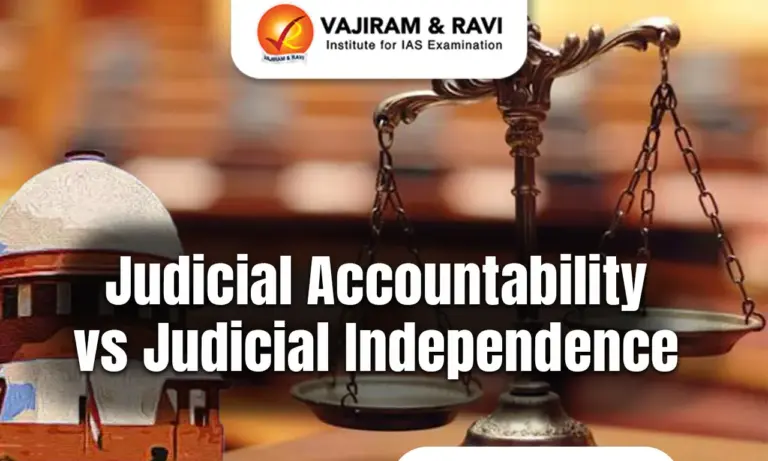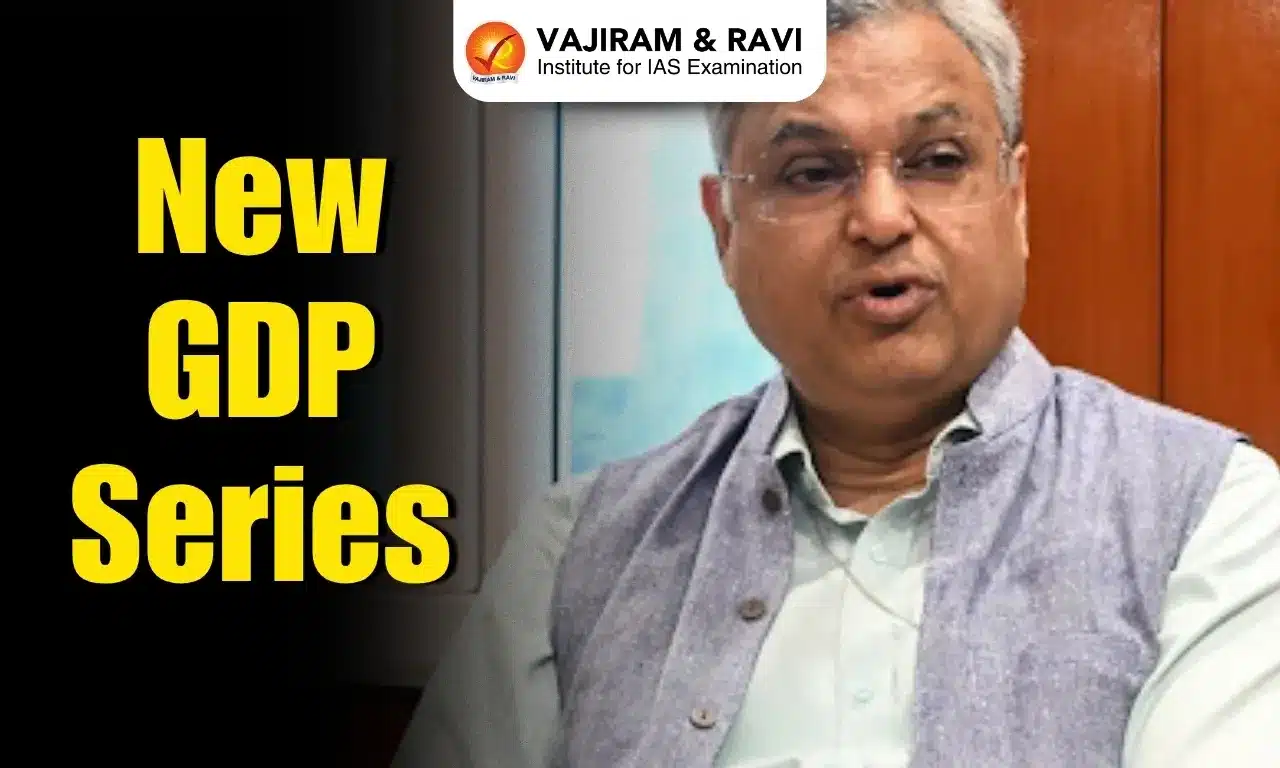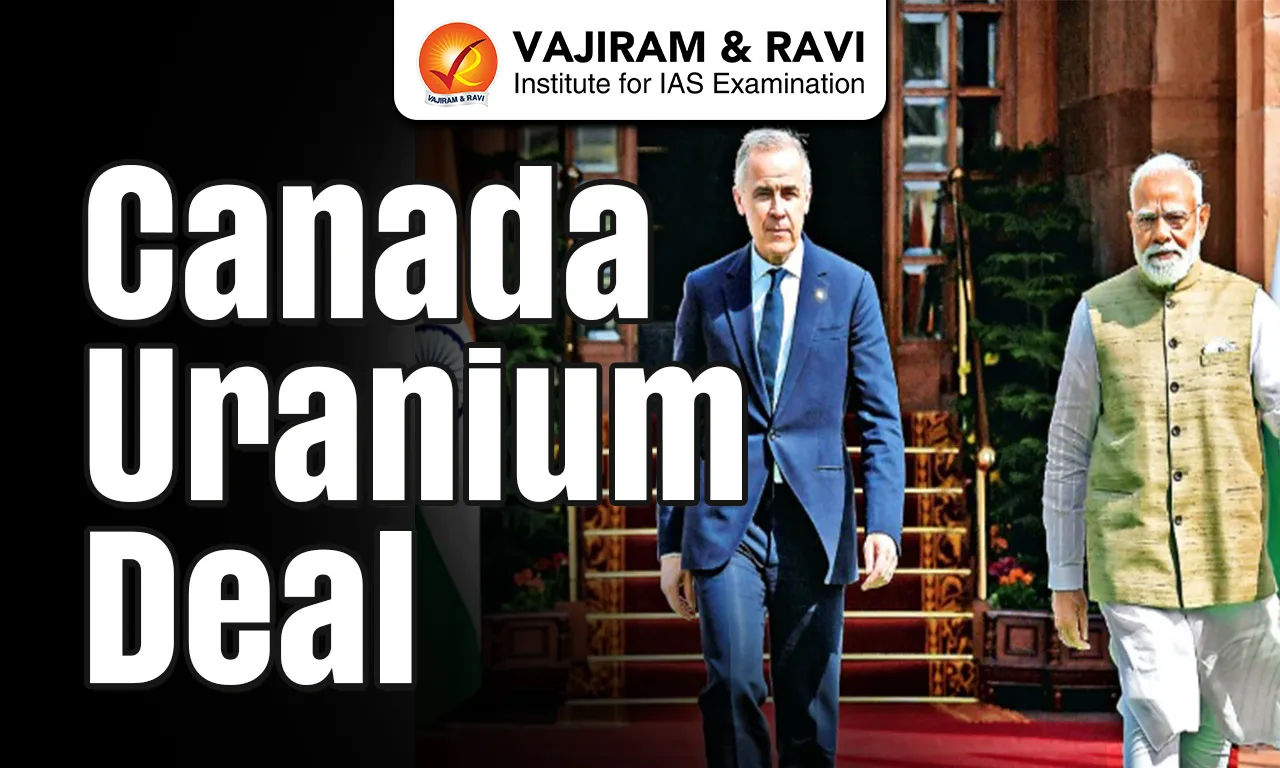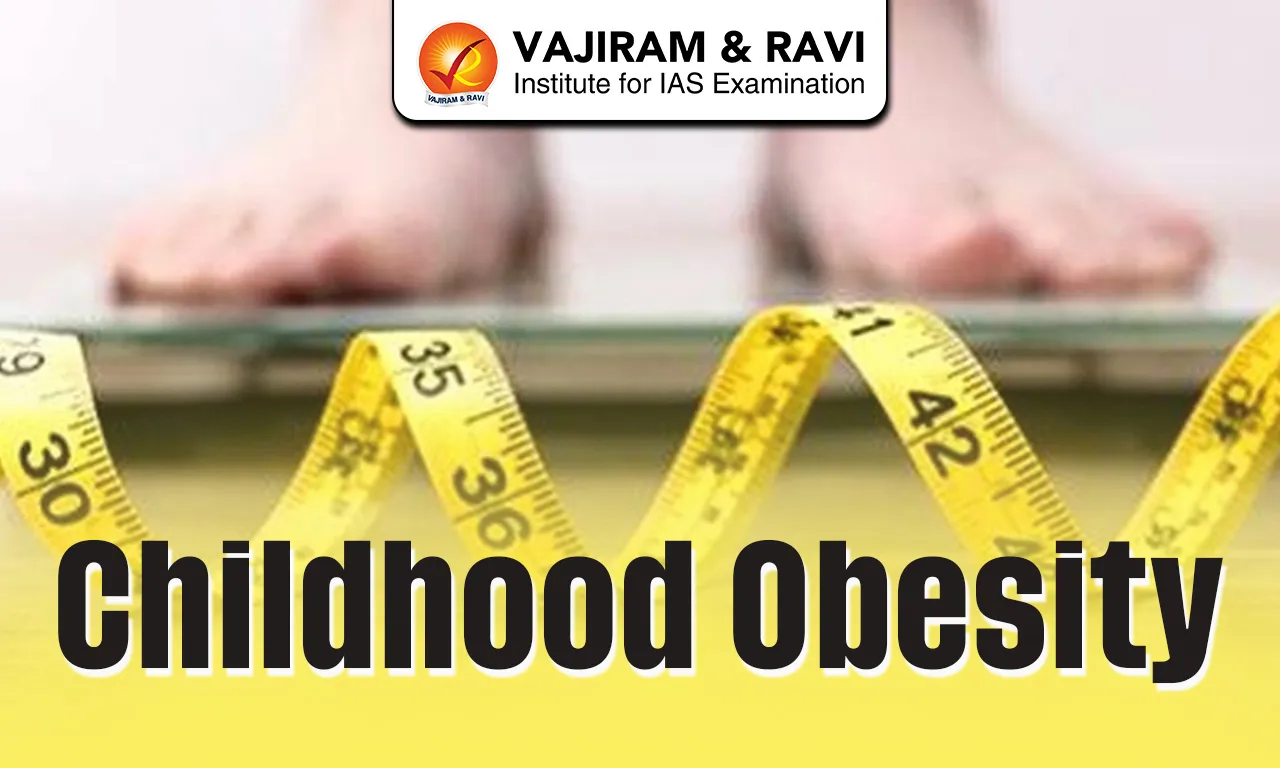Judicial Accountability vs Judicial Independence Latest News
- Vice President Jagdeep Dhankhar recently questioned the constitutional validity of the Supreme Court’s in-house inquiry into Justice Yashwant Varma, and called for revisiting the K Veeraswami judgment.
- This has reignited a long-standing debate on judicial accountability and the scope of criminal prosecution against judges.
Key Highlights of the Controversy
- The Justice Yashwant Varma case:
- Unaccounted cash was found at the residence of Justice Yashwant Varma in March 2024.
- Then a judge of the Delhi High Court, he was later transferred to the Allahabad High Court.
- An in-house inquiry by the Supreme Court indicted Justice Varma.
- SC dismissed a petition seeking FIR and criminal investigation; forwarded the inquiry report to the President and Prime Minister.
- Vice President’s objections:
- Called the in-house inquiry lacking constitutional or legal sanctity.
- Urged for an FIR against the judge and a relook at the K Veeraswami (1991) judgment, as the judgment has allegedly created a “scaffolding of impunity” for judges.
Judicial Independence vs Accountability
- Constitutional provisions:
- To protect judicial independence, the Constitution allows removal of judges only through impeachment under Article 124.
- Impeachment is a political process initiated by Parliament, which ensures due process for a judge.
- However, in the 75 years since the SC and the Constitution came into being, not a single attempt at impeachment has been successful.
- In-house inquiry mechanism:
- Origin: Created by the Supreme Court to address complaints against judges outside the formal impeachment process.
- Procedure: The CJI forms a panel to assess prima facie misconduct.
- Limitations: Cannot enforce removal – can only recommend action or act as a precursor to impeachment.
- Powers of CJI: Limited to transferring judges or withdrawing judicial work.
The Veeraswami Judgement (1991) – A Landmark in Judicial Prosecution
- Background:
- Justice K Veeraswami, former Chief Justice of Madras High Court, was accused of possessing disproportionate assets.
- An FIR, filed by CBI, was challenged in Madras High Court and later appealed to the Supreme Court.
- Key legal questions:
- Can a judge be considered a public servant under the Prevention of Corruption Act (1947)?
- Who has the authority to sanction prosecution against a sitting judge?
- SC verdict (3:2 majority): The SC held that while a judge can be considered a public servant for a corruption case to be registered against him, the sanction must come from the CJI (not the President or executive) to avoid executive overreach.
- Implication: Ensures judicial independence while permitting limited criminal accountability.
Post-Veeraswami Precedents
- Rare use of provision: Sanction for criminal proceedings against judges is rarely granted.
- 2019 precedent: Then CJI Ranjan Gogoi allowed CBI to register an FIR against Justice S N Shukla (Allahabad HC) for favouring a private medical college.
- Justice Gogoi’s predecessor: CJI Dipak Misra, had recommended the impeachment of Justice Shukla, but the government did not act on it.
Conclusion
- The Justice Varma episode and Dhankhar’s critique signal renewed tensions between institutional autonomy and public accountability.
- While the judiciary has developed internal mechanisms like the in-house inquiry to preserve its independence, critics argue these mechanisms lack transparency and enforceability.
- Revisiting the Veeraswami judgment and debating reforms to allow responsible criminal investigation without executive interference could help strike a better balance.
Judicial Accountability vs Judicial Independence FAQs
Q1. What is the significance of the Veeraswami judgment (1991) in the context of prosecuting judges in India?
Ans. The Veeraswami judgment held that judges of the higher judiciary can be prosecuted under the Prevention of Corruption Act, but only with prior sanction from the CJI, ensuring judicial independence.
Q2. Why has Vice President Jagdeep Dhankhar questioned the constitutional validity of the in-house inquiry mechanism of the Supreme Court?
Ans. He argued that the in-house inquiry lacks constitutional and legal sanctity and cannot substitute for formal criminal investigation or impeachment proceedings.
Q3. What are the constitutional provisions related to the removal of High Court and Supreme Court judges in India?
Ans. Under Article 124(4) and Article 217, judges can only be removed through impeachment by Parliament for proven misbehavior or incapacity.
Q4. How does the in-house inquiry mechanism differ from impeachment in ensuring judicial accountability?
Ans. The in-house inquiry is an internal disciplinary process initiated by the CJI with limited powers, while impeachment is a formal constitutional process requiring legislative sanction.
Q5. What was the context and outcome of the FIR sought against Justice Yashwant Varma?
Ans. Following the recovery of unaccounted cash at his residence, an FIR was sought but dismissed by the Supreme Court, which cited the ongoing in-house inquiry and its report being sent to the President and Prime Minister.
Source: IE
Last updated on March, 2026
→ UPSC Notification 2026 is now out on the official website at upsconline.nic.in.
→ UPSC IFoS Notification 2026 is now out on the official website at upsconline.nic.in.
→ UPSC Calendar 2026 has been released.
→ UPSC Final Result 2025 is expected to be released soon.
→ Check out the latest UPSC Syllabus 2026 here.
→ Join Vajiram & Ravi’s Interview Guidance Programme for expert help to crack your final UPSC stage.
→ UPSC Mains Result 2025 is now out.
→ UPSC Prelims 2026 will be conducted on 24th May, 2026 & UPSC Mains 2026 will be conducted on 21st August 2026.
→ The UPSC Selection Process is of 3 stages-Prelims, Mains and Interview.
→ Prepare effectively with Vajiram & Ravi’s UPSC Prelims Test Series 2026 featuring full-length mock tests, detailed solutions, and performance analysis.
→ Enroll in Vajiram & Ravi’s UPSC Mains Test Series 2026 for structured answer writing practice, expert evaluation, and exam-oriented feedback.
→ Join Vajiram & Ravi’s Best UPSC Mentorship Program for personalized guidance, strategy planning, and one-to-one support from experienced mentors.
→ Check UPSC Marksheet 2024 Here.
→ UPSC Toppers List 2024 is released now. Shakti Dubey is UPSC AIR 1 2024 Topper.
→ Also check Best UPSC Coaching in India
Tags: justice yashwant varma case mains articles upsc current affairs upsc mains current affairs


















